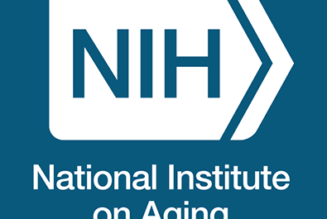
We were unable to send the article.
It’s a demographic truth: Americans are getting older.
From 2021 to 2022, the median age of U.S. citizens crept up 0.2% to 38.9 years, according to the U.S. Census Bureau. That most populous generation, the baby boomers, are in their twilight years. And their now-middle aged children are pushing that median age closer to 40 each year.
In 2014, a Pfizer study of Americans found that 87% of those surveyed have a fear of getting old. A recent Forbes study found that people who admitted their fears of aging were most worried about their declining health, losing loved ones, financial concerns, feeling lonely or bored and having a lack of purpose.
Kristen Lippencott is manager of wellbeing and health solution strategies for Arkansas Blue Cross and Blue Shield. She says that growing old is a privilege and does not have to be feared. “It’s a natural process we all hope to experience. And it’s one we can make easier through adopting a lifestyle centered on enjoying life in the present and making choices that help us age as healthily as possible.”
The wisdom of the blue zones
Lippencott says some of the most powerful knowledge about healthy aging comes from studies examining the lifestyles of people living in “blue zones,” the term for the five cities with the highest levels of health and longevity on the planet, and the highest concentrations of centenarians (people 100 or older). Those five areas are Loma Linda, California; Nicoya, Costa Rica; Sardinia, Italy; Icaria, Greece; and Okinawa, Japan.
The specific lifestyles and conditions vary, but experts analyzing these five blue zones and interviewing 263 centenarians determined they all share nine key characteristics that people in other areas can adopt. Healthy aging expert Marisa Payne, who is CEO and founder of California-based company In the Pursuit of Wellness, presented those nine blue zone traits recommended for healthy aging in a webinar made available to Arkansas Blue Cross employees. Those nine traits are:
- Moving naturally. The people in the healthiest areas incorporate movement into their daily activities. They may not work out at a gym, but they’re walking and moving throughout their days without necessarily thinking about it. These activities can include gardening, walking to destinations instead of driving, carrying laundry, working in the yard and any activities that are movement-intense while accomplishing other tasks.
- Knowing your purpose. Payne says Okinawans have a term, “ikigai,” and Nicoyans have a phrase, “plan de vida,” that translate as “why I get up in the morning.” She says research shows that having a sense of purpose in your life can add about seven years to average life expectancy. She also notes that retirees whose identities and purpose have been tied to their careers may need to find a new purpose to motivate them in their retirement.
- Downshifting. Blue zone residents incorporate routines into their daily lives that help them naturally relieve stress, such as napping, praying, meditating or winding down before bedtime. Prioritizing time to pause, rest and reflect can effectively manage and reduce daily stress.
- Following the 80% rule. The 80% rule relates to eating. Many people eat until they feel “stuffed,” but in the blue zones, residents tend to stop eating when they feel 80% full. That avoids eating to excess and encourages mindful eating.
- Eating plant-forward. Inhabitants of blue zones are not necessarily vegetarians, but meat has a lesser place in their diets than in modern American culture. Icarians, for instance, eat mostly plant-based meals but enjoy meat about five times per month. Others use meat as a seasoning or side, rather than a main dish. In blue zones, plates tend to be at least 50% full of fruits and vegetables. Plant-based oils are also commonly associated with longevity and health rather than animal-derived fats such as lard and butter. Payne adds that some of the best anti-aging foods are chia seeds, walnuts, soybeans, squash and Brussels sprouts.
- Moderating alcohol use. In general, the longest-lived, healthiest populations limit their alcohol consumption to less than a glass or two of alcohol per day.
- Belonging to groups. Payne says of the 263 centenarians interviewed for this study, all but five of were active in faith-based communities. An organization does not have to be religious, though, to help your longevity and wellness. The important thing is that these longest-lived humans prioritized community. Getting involved in organizations you care about, going to worship services, volunteering for a nonprofit or joining a social club can help you live a longer, healthier life.
- Putting loved ones first. The centenarians did not live solitary lives. Rather, their lives were family centric. Most lived with their families or a life partner and spent time with their children and grandchildren. Payne says that familial support network and connection is important, whether or not your “family” is your biological family.
- Finding your tribe. The adage, “Make new friends but keep the old/One is silver and the other gold,” rings true for the blue zone residents, who surround themselves with social circles that support healthy living. Making new friends can supply a boon at any age, Payne says. She adds that in Okinawan culture, it’s common for people to be part of a “moai,” a group of five friends who commit to each other for life, starting in childhood. Having trusted companions to share life with you even in your senior years can make an enormous difference in how long you live and how much you continue to enjoy it.
More smart ideas to age well
In addition to these nine traits of blue zone centenarians, Lippencott has these recommendations:
- Keep your annual wellness exams. Even if you aren’t feeling ill, Lippencott says it’s important to see your primary care provider at least once a year for a complete physical and wellness visit, no matter your age. “These visits help providers establish your baseline health, track health milestones and trends over time, and develop a trusted relationship with you,” Lippencott says. By asking questions you may not have considered and ordering preventive screenings, providers often are able to detect emerging problems early and treat them more effectively than if they had become more advanced.
- Keep your mind engaged. Lippencott highly recommends adults keep learning new things, particularly in their senior years. She’s a board member of LifeQuest of Arkansas, a central Arkansas-based organization (Arkansas Blue Cross is a sponsor) that offers seniors in-person and online classes in a wide range of subjects in quarterly sessions. Participants can take weekly classes ranging from practical topics like retirement issues, yoga and Microsoft Word to academic subjects like the periodic table, Spanish, American history or current events and arts and hobbies including painting, memoir writing or the films of Steven Spielberg. Classes vary each quarter. Lippencott says Arkansans around the state can find similar lifelong learning programming from organizations, colleges and universities in their areas. “Learning new information or skills helps keep our minds sharp,” she says. “There’s no age cap on curiosity.”
- If you’re a caregiver, engage in self-care, too. Caregivers are particularly prone to burnout and weariness, Lippencott says. She highly recommends “Caring for the Caregiver,” a free course the Arkansas Cooperative Extension Service offers. Organizations can work with the extension service to offer the class to their employees. She says the extension service has excellent resources on healthy aging, among other wellness topics, available through their website. The Area Agencies on Aging offer support groups for caregivers, often with care for your loved one available as you attend the group. The Arkansas Association of Area Agencies on Aging offers numerous resources and services to support the state’s senior population.
- Start where you are. Lastly, Lippencott often reminds people that it is never too early or too late to start adopting healthy habits. Participation in employee wellness programs is an effective way to help instill a wellness-conscious lifestyle during adults’ working years. She works with employers to help them understand the wellness and wellbeing services available and what would best work with their unique employee population. While a formal wellness program is not a prerequisite to healthy aging and anyone can start making healthy choices and changes to their lifestyles at any age, Lippencott says the longer people have been adopting these habits, the greater their potential boon can be.









